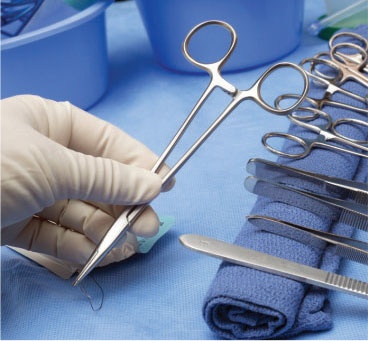


Surgical Instruments Manufacturers in Sialkot, a city renowned for its export prowess.
Surgical Instruments Manufacturers in Sialkot, a city renowned for its export prowess and skilled artisans, stands as a pillar of Pakistan’s industrial landscape. Among its most distinguished contributions to the world is the manufacturing of surgical instruments. This industry, deeply embedded in the city’s heritage, has evolved from a small-scale craft into a sophisticated global enterprise. Sialkot’s manufacturers are not merely producers; they are custodians of a legacy built on precision, reliability, and an unwavering commitment to quality that meets stringent international standards. The journey of a surgical instrument, from a raw piece of stainless steel to a life-saving tool in an operating room, often begins in the workshops of this remarkable city.
The genesis of this industry dates back over a century, rooted in the craftsmanship of local blacksmiths. Today, that tradition has been meticulously honed and technologically advanced. Modern surgical instrument manufacturers in Sialkot operate state-of-the-art facilities equipped with precision forging, computer numerical control machining, and laser marking technologies. This blend of time-honoured manual skill and cutting-edge automation is what sets Sialkot apart. Artisans, often with skills passed down through generations, work alongside engineers to create instruments of exceptional quality. The process involves multiple stages, including forging, milling, grinding, heat treatment, polishing, and passivation, each critical to ensuring the final product’s durability, corrosion resistance, and flawless performance.
A critical factor behind the global trust in Sialkot-made instruments is the rigorous adherence to international quality certifications. Reputable manufacturers are consistently approved against standards such as ISO 13485 for medical devices and comply with the regulations of major international bodies, including the Food and Drug Administration (FDA) and the European Union’s CE marking requirements. This compliance is not merely a badge on a brochure; it is an integral part of the production philosophy. It encompasses everything from the traceability of raw materials, often premium German and British surgical steel, to the implementation of strict quality control protocols at every single step of the manufacturing process. Each instrument is meticulously inspected for its finish, functionality, and freedom from defects, ensuring it meets the exacting demands of surgeons and medical professionals worldwide.
The export footprint of Sialkot’s surgical industry is truly global, supplying to over 150 countries. The United States and European nations are among the largest importers, relying on Sialkot for a significant portion of their surgical instrument needs. This export success is facilitated by the city’s unique ecosystem, which includes the Sialkot Chamber of Commerce and Industry and the dedicated Sialkot International Airport, built through the collective investment of local businesses. This infrastructure underscores the community’s proactive approach to facilitating trade and maintaining its competitive edge in the global market. The manufacturers here are adept at catering to diverse needs, producing a vast array of instruments ranging from general surgery sets to highly specialised tools for cardiology, neurology, and orthopaedics.
While the industry is a story of success, it is not without its challenges. Manufacturers must continuously innovate to stay ahead of international competition, particularly from Germany and China. This requires significant investment in research and development to create new, innovative instrument designs and improve existing ones. Furthermore, the need to constantly upgrade technology and machinery to enhance efficiency and precision demands substantial capital. However, these challenges are met with resilience. The industry is increasingly focusing on producing high-value, specialized instruments rather than competing solely on price. Many leading manufacturers are moving up the value chain by offering finished products ready for sterilization and immediate use, complete with packaging and sterilization trays, directly to end-users and large hospital networks.
The future of surgical instrument manufacturing in Sialkot is poised for further evolution. Trends such as robotic-assisted surgery and the development of minimally invasive surgical techniques require even more precise and specialized tools. Sialkot’s manufacturers are actively engaging with these advancements, investing in new technologies and building collaborations with international medical companies to co-develop next-generation instruments. The focus is shifting towards becoming comprehensive solution providers rather than just product suppliers.
Sialkot’s surgical instrument manufacturing sector is a testament to how traditional craftsmanship, when fused with modern technology and a relentless pursuit of quality, can achieve global recognition. The city has rightfully earned its title as the world’s workshop for surgical instruments. For any medical professional or procurement entity seeking reliable, high-quality, and cost-effective surgical tools, engaging with the esteemed manufacturers in Sialkot is not just an option; it is a strategic decision to partner with a center of excellence that has been perfecting its art for generations. Their commitment ensures that surgeons worldwide have the precise tools they need to save lives and improve patient outcomes.
Faqs
